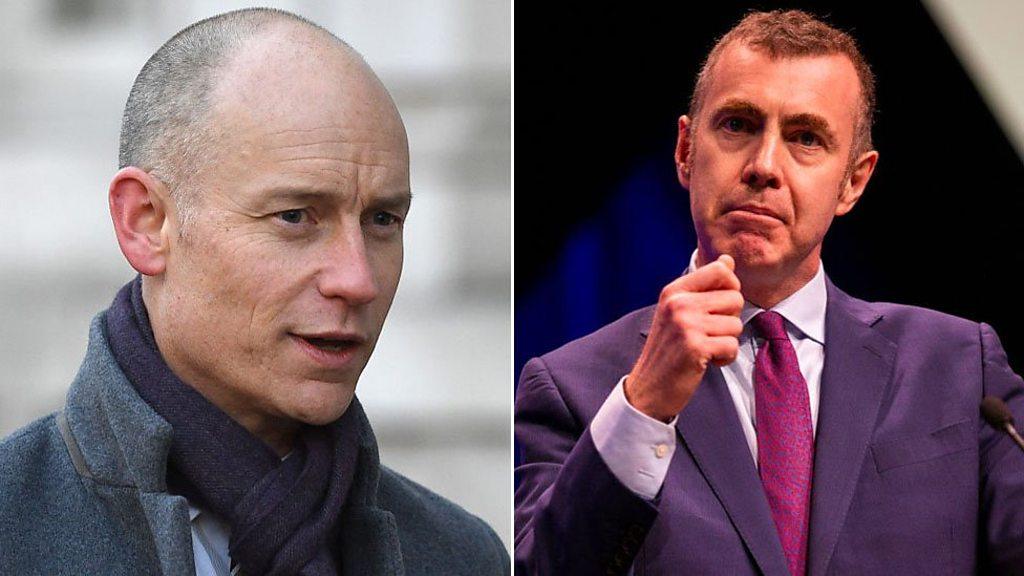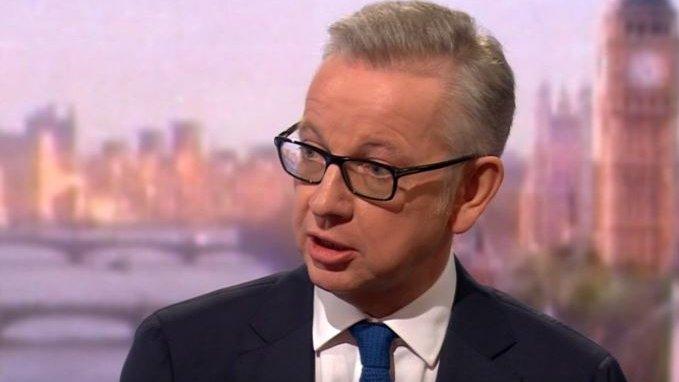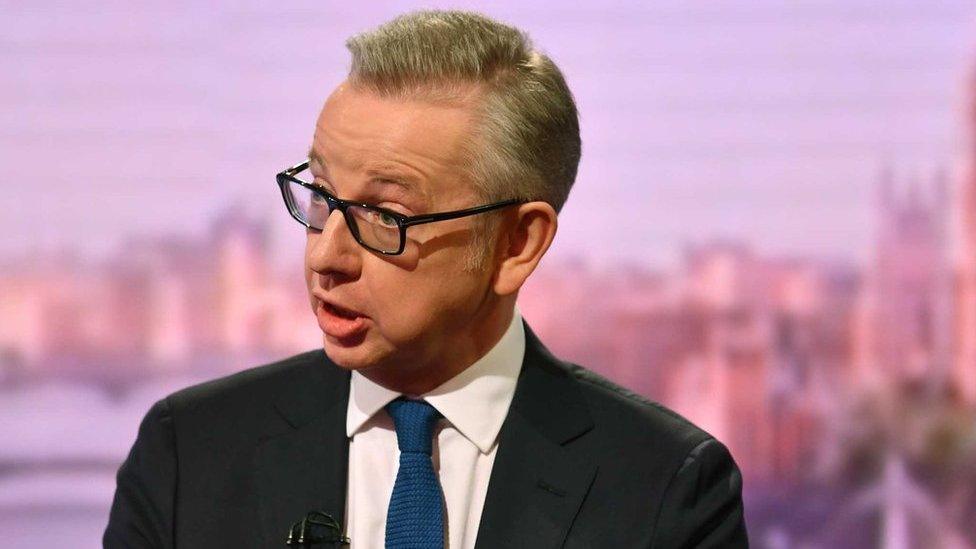Politicians Adam Price and Stephen Kinnock admit taking drugs
- Published
Adam Price and Stephen Kinnock both confessed to taking drugs
Two Welsh politicians have admitted to taking drugs in their youth.
Plaid Cymru leader Adam Price said: "As a gay man who first went clubbing in the 1990s it would be a bit of a surprise if I hadn't taken drugs."
Labour backbench MP Stephen Kinnock, who represents Aberavon, admitted "smoking weed" during his school days.
The panellists on the BBC's Question Time were asked if they had taken drugs, after Michael Gove admitted taking cocaine 20 years ago.
Mr Price said he was "not proud" of it, adding: "But I'm not going to lie about it either."
"15 million people in this country have taken illegal drugs… that's got to be a message to us that prohibition has failed in the most dismal way possible," he said.
Mr Kinnock, son of the former Labour leader Neil Kinnock, said he went to a comprehensive school in west London and "as far as I could see about half of the intake in that school was smoking weed and I was part of that half.
'Tremendous disruption'
"And I was also part of… what some call the second summer of love in early 1990s - house music, raves - and I was also a part of that.
"The war on drugs is being lost… causing tremendous disruption in society, heartbreak."
Former Northern Ireland Secretary Theresa Villiers said she "had about three attempts of cannabis at university, only the last time I managed to inhale and was sick".
"So I never touched it again and wouldn't recommend to anyone else."
She said although her approach to drug policy "has always been pragmatic" and she was open to reform, she was reluctant to advocate legalisation of cannabis because of the "very serious health downsides".
Mr Gove has admitted he was "fortunate" to avoid jail after using cocaine several times 20 years ago.
Mr Price went on to attack the BBC's decision to scrap free TV licences for all over-75s, calling it "absolutely unacceptable".
He said it was "absolutely disgusting" and there was a "moral vacuum" at the heart of the organisation.
The BBC previously said funding the free licences for all over-75s would lead to "unprecedented closures", putting BBC Two, BBC Four, the BBC News Channel, the BBC Scotland channel, Radio 5live, and a number of local radio stations at risk.
In 2015, the UK government announced the BBC would take over the cost of providing free licences for over-75s by 2020.
'Fairest decision'
A BBC spokesperson said: "We've reached the fairest decision we can in linking free licences to Pension Credit, so we can protect the poorest older pensioners while ensuring everyone will continue to receive the programmes and services all audiences love. We want to make this as simple and easy as possible with more personal support.
"We'll be working with organisations representing older age groups and charities to help raise the visibility of Pension Credit as a way of claiming a free TV licence. We'll also be introducing a new payment plan for pensioners aged 75 or over who will now be eligible to pay including smaller fortnightly instalments."
- Published14 June 2019

- Published9 June 2019

- Published8 June 2019
